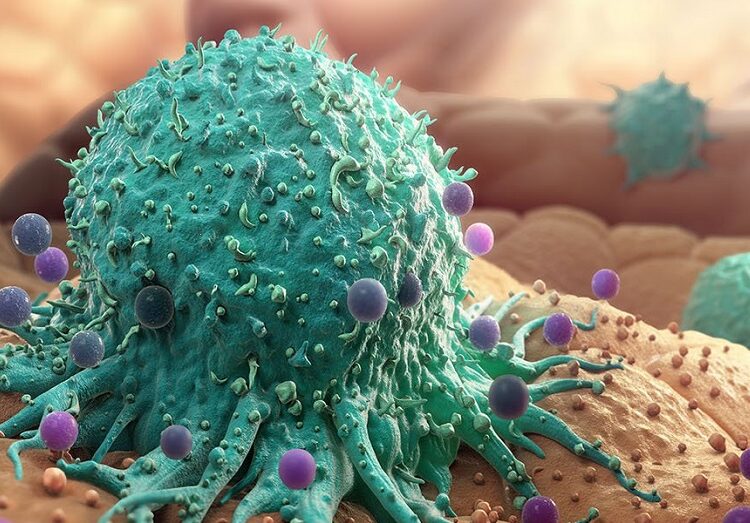Nigeria joins the global cancer care community to commemorate the World Cancer Day, with the slogan “Close the care gap”, and the call to unite voices and take action.
It is on record that cancer is one of the leading causes of morbidity and mortality worldwide, with approximately 19 million new cases and close to 10 million cancer-related deaths every year.
According to the World Health Organisation’s (WHO) cancer agency, the International Agency for Research on Cancer (IARC), latest estimates, indicate that about one in five people develop cancer in their lifetime, approximately one in nine men and one in 12 women die from the disease.
The health organisation noted that more than 60 per cent of the world’s total new annual cases occur in low and middle income countries, which account for about 70 per cent of cancer deaths.
It is also estimated that 57 per cent of new cancer cases and 47 per cent of cancer deaths occurred in people 69 years of age and younger, in the prime of their lives, while the cancer burden will increase by approximately 60 per cent over the next two decades, further straining health systems, people, and communities.
The IARC identified three major cancer types globally in 2022: lung, breast and colorectal cancers.
Lung cancer was the most commonly occurring cancer worldwide with 2.5 million new cases accounting for 12.4 per cent of the total new cases. Female breast cancer ranked second (2.3 million cases, 11.6 Per cent), followed by colorectal cancer (1.9 million cases, 9.6 per cent), prostate cancer (1.5 million cases, 7.3per cent)and stomach cancer (970 000 cases, 4.9per cent)
But in Nigeria, cervical cancer is the third most common cancer and the second most frequent cause of cancer deaths among women aged between 15 and 44 years.
In 2020, the latest year for which data is available, the country recorded 12 000 new cases and 8,000 deaths from cervical cancer, while about 40, 000 Nigerian children are diagnosed of different types of childhood cancers every year, out of which 80 per cent die due to poor detection and clinical treatment.
In the considered opinion of this newspaper, the loss of about 8,000 Nigerian women and 3600 children yearly from a disease that is preventable is completely unacceptable.
We find it pathetic and rather pitiable that while the world is deploying high tech innovation and technology are to tackle its myriad of challenges, including health, Nigeria is still battling with deplorable health facilities coupled with obsolete diagnostic tools and equipment to detect and treat these non communicable diseases, including cancer when they present.
More worrisome, in our view, is the fact that most cancer sufferers present late to the health givers when they’re at the end stage of the diseases and with little or nothing to salvage the situation.
In a country of estimated N200 million people and 166 tertiary health institutions where these illnesses require specialised and advanced care, the sufferers take turns, in some cases, cascading into months for appointments with clinicians and treatment.
The President of the Nigerian Cancer Society, Dr Adamu Umar, disclosed in 2022 that Nigeria had only 13 radiotherapy machines for its teeming population and most of the nine of these radiotherapy machines in government healthcare facilities are not functioning.
Radiation therapy is a type of cancer treatment that uses beams of intense energy to kill cancer cells.
According to the WHO, more than 50 per cent of cancer patients require radiotherapy as part of cancer care and it is frequently used to treat the most common types, such as breast, cervical, colorectal, and lung cancer.
Yet, access to radiotherapy is inadequate, particularly in low- and middle-income countries, including Nigeria.
Though the Nigeria Cancer Health Fund is an innovative way to ensure the affordability of cancer treatments for patients at treatment centres and is a key part of the nation’s efforts to achieve Universal Health Coverage (UHC), the nation’s Health Insurance is not widespread and does not offer comprehensive cancer care coverage.
However, we applaud the laudable efforts of the federal government to vaccinate 7.7 million girls against the vaccine – preventable cervical cancer
The vaccine is being provided for free by the Federal Ministry of Health through the National Primary Health Care Development Agency with support from Gavi, the Vaccine Alliance, United Nations Children’s Fund (UNICEF), World Health Organization (WHO) and other partners.
Girls aged 9–14 years across the country will receive a single dose of the vaccine, which is highly efficacious in preventing infection with HPV types 16 and 18 that are known to cause at least 70 per cent of cervical cancers.
Erroneously, in our opinion, being diagnosed of cancer in Nigeria is like being handed a death sentence, due in part to the prevalent poor health facilities and antendant health outcomes. Hence there’s need for more awareness especially in the rural communities where the country’s 70 per cent poor live.
The primary goals of World Cancer Day are to raise awareness about cancer, dispel myths and misconceptions, encourage early detection, and advocate for improved cancer care.
Cancer can be prevented and controlled by implementing evidence-based strategies for cancer prevention, screening, early detection, treatment, and palliative care.
The most common modifiable risk factors for cancer, which are shared with many other noncommunicable diseases, are: tobacco use,low fruit and vegetable intake, harmful use of alcohol and lack of physical activity.





